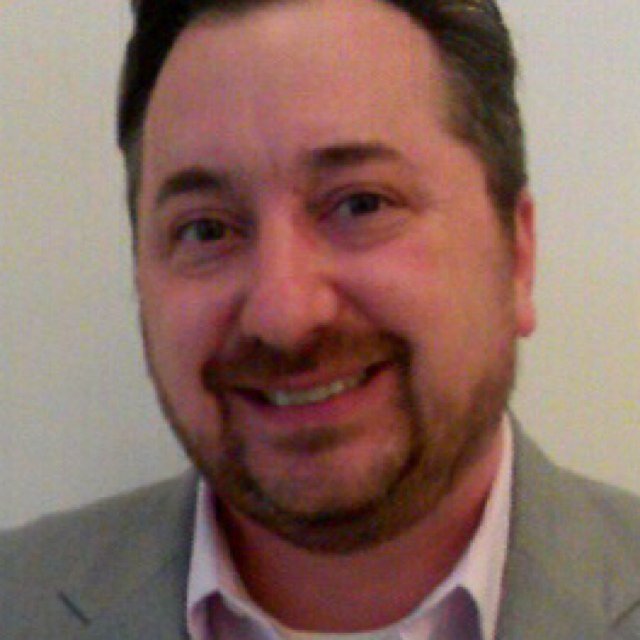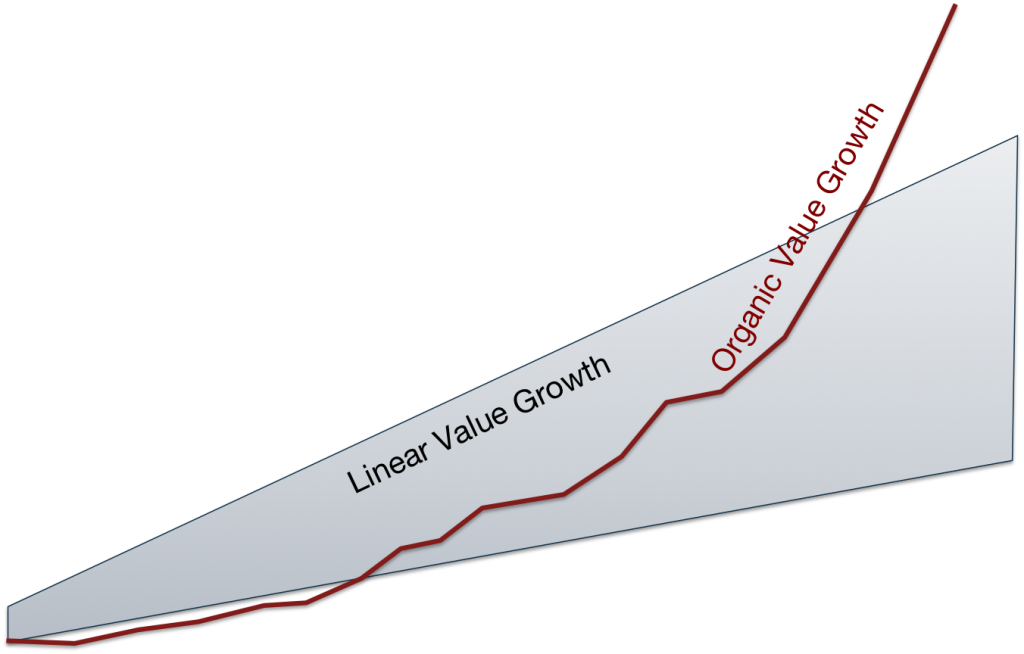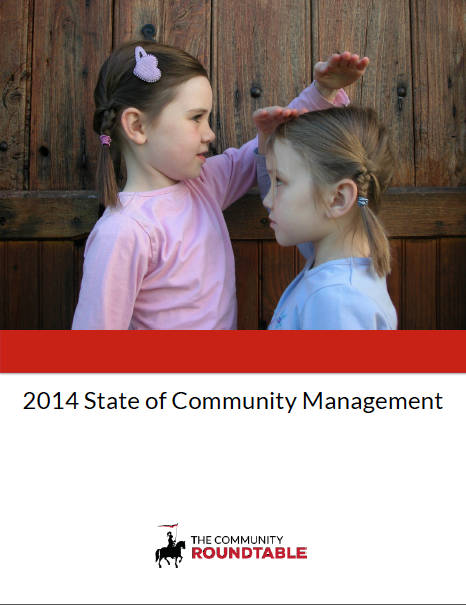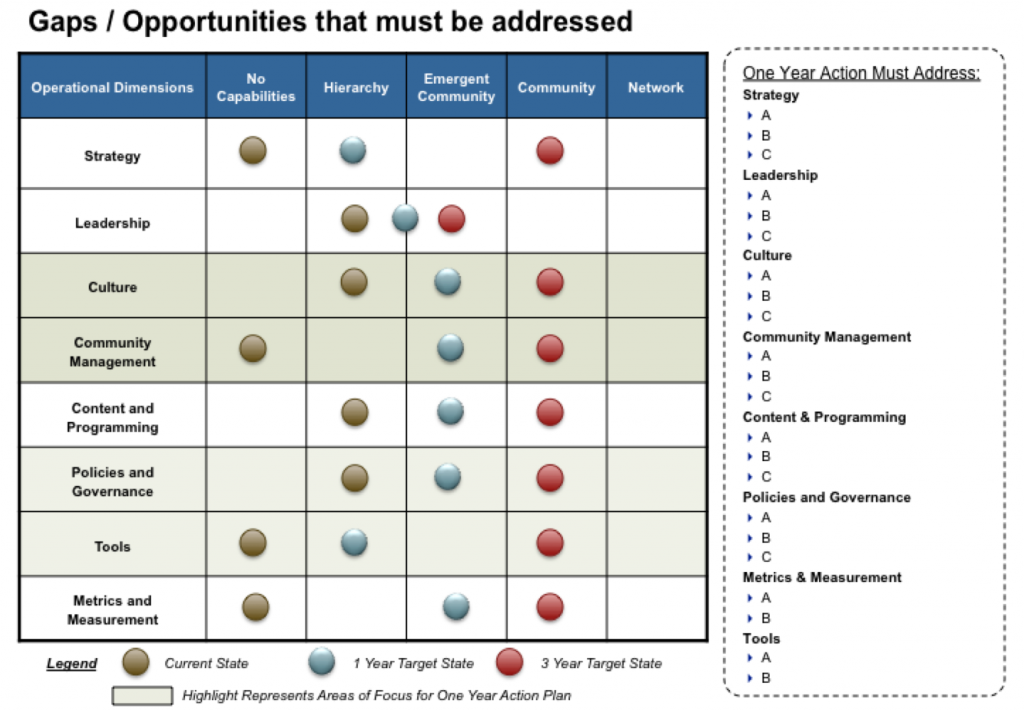By Shannon DiGregorio Abram, Relationship Manager at The Community Roundtable.
 Our last interview with a community veteran is with one of our earliest members and most vocal supporters – Michael Pace. Michael has worked tirelessly to advance the ideas and practice of community customer support and has been a great leader in and out of TheCR Network.
Our last interview with a community veteran is with one of our earliest members and most vocal supporters – Michael Pace. Michael has worked tirelessly to advance the ideas and practice of community customer support and has been a great leader in and out of TheCR Network.
You can connect with Michael on twitter, or follow him on his blog: thepaceofservice.com.
1. How have you seen the community management space evolve over the past five years?
Interesting question. Oddly, I feel I have seen two separate paths for community management over the last five years. Path #1: I call this the status quo path. People who still preach and practice exactly the same way they did 3,4,5 years ago. They seem to be adding very little to the conversation, and continually regurgitate the same old same old spiel. Many of them do not believe you should or could quantify the value of your community, and believe in many of the original “isms” of yesteryear. Path #2: I call this the edge of the box path. This is the true evolution of community management. They look at how to leverage the skills, competencies, and tools to push our thought on what can be done. Folks interested in social business have moved down this path, because it is bigger and immensely more valuable than just social media networks. They have operationalized social, their communities, and tools to distill the insights necessary to move forward.
2. What are some of the biggest differences from when you first started out in community management?
The biggest difference (for me) from when I first started is the incorporation of customer service into the social space. In ’09 it was still all Marketing and PR, except for Frank Eliason at Comcast. Finding others interested in social/community management for customer service was very scarce. In a lot ways I appreciate that open range today, because I may have fallen lock step with the crowd if it wasn’t so scarce. It pushed me to find ways to make social work for customer service.
3. What would you do differently in your first community management role knowing what you know now?
Executive champions, executive champions, executive champions! Did I mention executive champions? Without executive championship, you are going to be Sisyphus pushing your rock up the hill each day. I had relatively strong executive championship, but if I was to do it again, I would have made it bigger and more pronounced.
4. Where do you see yourself in five years?
Five years from now, I see myself with my own customer service shop/contact center. But it wouldn’t be your father’s contact center. It was be rich with efficient communication and collaboration.
5. Did you have any community management mentors along the way? Any specific advice they gave you that stood out to you?
Not just saying this for the purposes of this questionnaire, but Rachel and Jim were my primary local mentors. I had a Facebook page to keep track of idiots I didn’t like in high school, and a LinkedIn page to source job opportunities. Beyond that no social training what so ever. They helped me ramp up so quickly that I was speaking about social customer service in front of audiences within a few months. Best advice came from Rachel. She told me my Twitter stream was boring. “Who wants to only hear about email marketing all day. Show your personality. If I am interested in you, I’ll be interested in what you share.” Three months later, I was making Movember shower videos. https://www.youtube.com/watch?
6. What would you tell someone who has made the career leap and is in the early stages of their career in community or social business?
If someone was making the career leap over to social and community management, I would tell them regardless of what you believe this role will entail, you should continue to focus on core business competencies, as well as social networking skills. Core business competencies should include (but might not be limited to) communication, influencing others, analyzing data, teamwork, customer focus, results focus (getting things done efficiently), and people development and management. Odds are is your community management role will be cross functional, and you will need to (continue to) learn how to develop these competencies in order to effectively advocate for funding/people, deliver on cross functional goals, communication activity and vision, and gain insight.
7. If you could go back and give yourself advice five years ago what would you say?
“Hey this Facebook and Twitter thing may actually take off, go get yourself involved.”
—–
Did you know that TheCR Network members work with all kinds of communities? In fact, about 25% work in either internal or external communities and 50% work with both! No matter what kind of community you work with membership in TheCR Network will save you time and improve the quality of your work by connecting you with peers, experts and curated information. Learn how joining TheCR Network can improve the work you do.
 To celebrate our 5th anniversary I spent an afternoon with our founders, Jim Storer and Rachel Happe discussing the history of The Community Roundtable, how community management has evolved in the last five years and what is in-store for the future.
To celebrate our 5th anniversary I spent an afternoon with our founders, Jim Storer and Rachel Happe discussing the history of The Community Roundtable, how community management has evolved in the last five years and what is in-store for the future.





